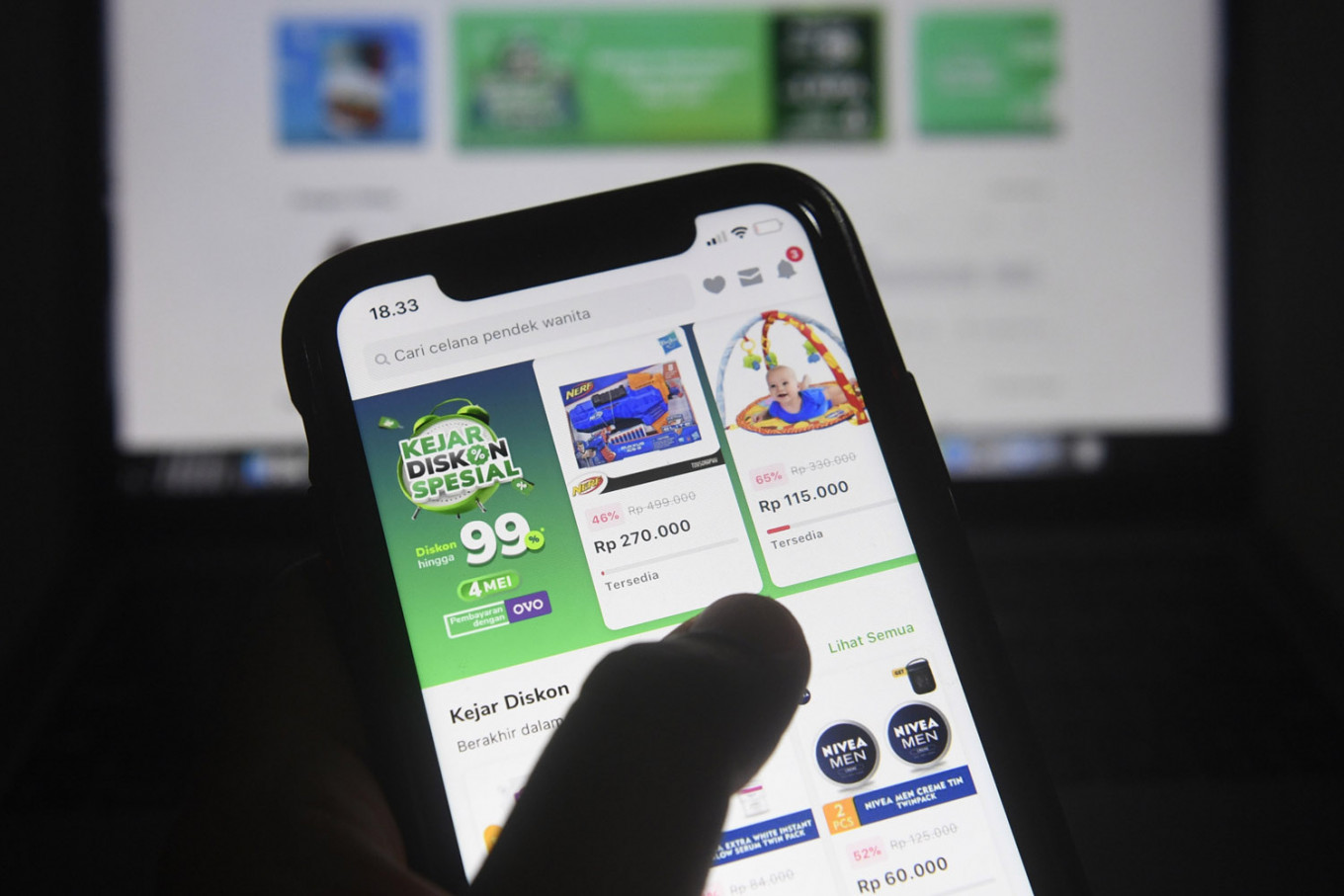Popular Reads
Top Results
Can't find what you're looking for?
View all search resultsPopular Reads
Top Results
Can't find what you're looking for?
View all search resultsGovt appoints 10 new 'VAT collectors' amid declining revenue, consumer shift
The tax office has added another 10 companies to its list of "VAT collectors" as it pushes to collect more tax amid the coronavirus-induced decline in revenue and increased consumer shift to online services.
Change text size
Gift Premium Articles
to Anyone
T
he Finance Ministry’s Taxation Directorate General on Tuesday appointed another 10 digital technology companies as “VAT collectors”, which are obliged to collect 10 percent value-added tax (VAT) from the foreign goods and services they sell under the government’s new digital tax.
The latest additions bring the total number of designated VAT collectors to 46.
The newly appointed VAT collectors include Cleverbridge AG, Hewlett-Packard Enterprise USA, SoftLayer Dutch Holdings BV, which operates IBM’s Cloud Service, video game distribution software Steam by Valve Corporation, and video on demand (VoD) and streaming service beIN Sports Asia Pte Limited.
The other five are e-commerce platforms Bukalapak, Lazada, Zalora, Tokopedia and Blibli.com, with the tax office clarifying that e-commerce platforms would collect VAT only from foreign goods and services sold by foreign merchants.
Read also: Indonesia adds 8 more 'VAT collector' tech firms, including Alibaba Cloud, Microsoft
“With these appointments, the companies will charge VAT on the products and services they sell to Indonesian consumers starting on Dec. 1, 2020,” the tax office said in a statement.
The government has moved to tax digital tech companies with no physical presence in Indonesia, but nonetheless have a “significant economic presence” through the business activities they conduct in the country, in light of its falling tax revenue as well as the growing trend among consumers to shift to online platforms during the COVID-19 health emergency. Many governments around the world have been pursuing digital tax schemes, primarily to ensure that tech giants pay their fair share of taxes on the local earnings they make.
Indonesia on May 16 issued Law No. 2/2020, which mandates the 10 percent VAT requirement on nonresident digital services providers that generate minimum sales of Rp 600 million (US$40,851) per year or Rp 50 million per month, and have a user base of at least 12,000 in Indonesia.
Technology behemoths Google Asia Pacific, Netflix and Facebook are among the appointed VAT collectors, as are LinkedIn Singapore, two Twitter subsidiaries, Zoom Video Communications and Microsoft Ireland Operations Ltd.
Indonesian E-commerce Association (IdEA) chair Bima Laga told The Jakarta Post on Wednesday that the VAT applied to as yet untaxed foreign goods and services, such as online gaming vouchers, computer software and streaming subscriptions.
“So this is not a new e-commerce tax,” Bima stressed. He added that IdEA was ready to assist any of its members that wanted to discuss the new VAT rule with the tax office.
But for e-commerce platforms, it is not necessarily the tech companies that will be responsible for adding the tax to their goods and services, according to Bukalapak vice president marketplace Kurnia Rosyada.
“At Bukalapak, [our] merchants will be the ones to add the 10 percent VAT to the price of their goods, but they must first discuss the change with our team so we can ensure that the price includes the tax,” Kurnia said on Wednesday.
Indonesia has seen a major shift in consumer behavior during the health crisis, with consumers turning increasingly to digital services amid the attendant restrictions on their mobility and activities.
According to the e-Conomy SEA 2020 report by Google, Temasek and Bain & Company, Indonesian digital consumers spent more than four hours online per day during the health crisis, with the majority using the internet to buy groceries, to use educational software and learning platforms, and to use digital lending platforms.
Read also: Indonesia needs broad-based tax reform to boost state revenue: IMF
Meanwhile, the report said that 37 percent of all digital consumers were new users, of which 38 percent were first-time users of digital music platforms and 34 percent were first-time users of VoD, streaming and other services for watching movies online.
Taxation Directorate General spokesperson Hestu Yoga Saksama said the office was in discussions with several other digital services providers slated to be next VAT collectors, but did not disclose any details.
“We have the data to measure the potential income from this tax. However, we are currently focusing on better implementation of the digital tax, as well as on discussions with more foreign digital companies that will be subjected to the tax,” he told the Post on Wednesday.
Economist Bhima Yudhistira of the Institute for Development of Economics and Finance (Indef) has projected that the digital goods VAT would contribute less than 10 percent of the Rp 546 trillion VAT collection targeted for next year.
“The tax could also drive consumers to shift from buying goods on e-commerce [platforms] to buying [them] on social media, where it will be more difficult to tax,” he cautioned on Wednesday.










